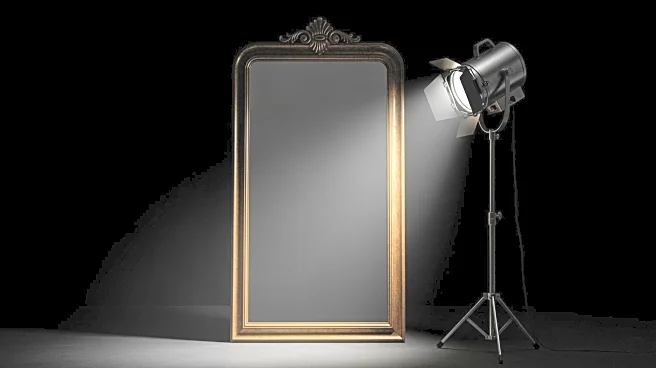What's Happening?
The Chicago Shakespeare Theater is currently hosting a stage adaptation of the 'Paranormal Activity' franchise, marking a new direction for the horror series. The play, which runs through November 2, diverges
from the traditional film format by presenting an original script that does not revisit characters or canon elements from the original movies. Unlike previous installments that relied heavily on the found footage aesthetic, this production opts for a different storytelling approach. The franchise, which began with a microbudget film in 2009, has seen various iterations, including the seventh film 'Paranormal Activity: Next of Kin,' which went directly to streaming four years ago.
Why It's Important?
The transition of 'Paranormal Activity' from film to stage reflects a broader trend in entertainment where popular franchises expand into different media formats to reach new audiences. This move could potentially rejuvenate interest in the franchise, attracting theatergoers who may not have engaged with the films. It also highlights the growing intersection between film and theater, as seen with other franchises like 'Harry Potter' and 'Stranger Things.' The success of this stage adaptation could influence other film franchises to explore similar expansions, impacting the entertainment industry by diversifying content delivery methods.
What's Next?
As the play continues its run in Chicago, its reception could determine future adaptations or expansions of the 'Paranormal Activity' franchise. Positive audience and critical feedback might encourage producers to consider additional stage productions or other media formats. The theater's approach to storytelling without relying on found footage could set a precedent for future horror adaptations, potentially influencing how horror narratives are crafted in live performances.
Beyond the Headlines
The adaptation of 'Paranormal Activity' for the stage raises questions about the evolution of horror storytelling and its adaptability across different formats. The decision to move away from found footage could signal a shift in how horror is perceived and experienced by audiences, emphasizing live interaction and theatrical elements over traditional cinematic techniques. This could lead to a broader exploration of horror themes in theater, challenging creators to innovate within the genre.










